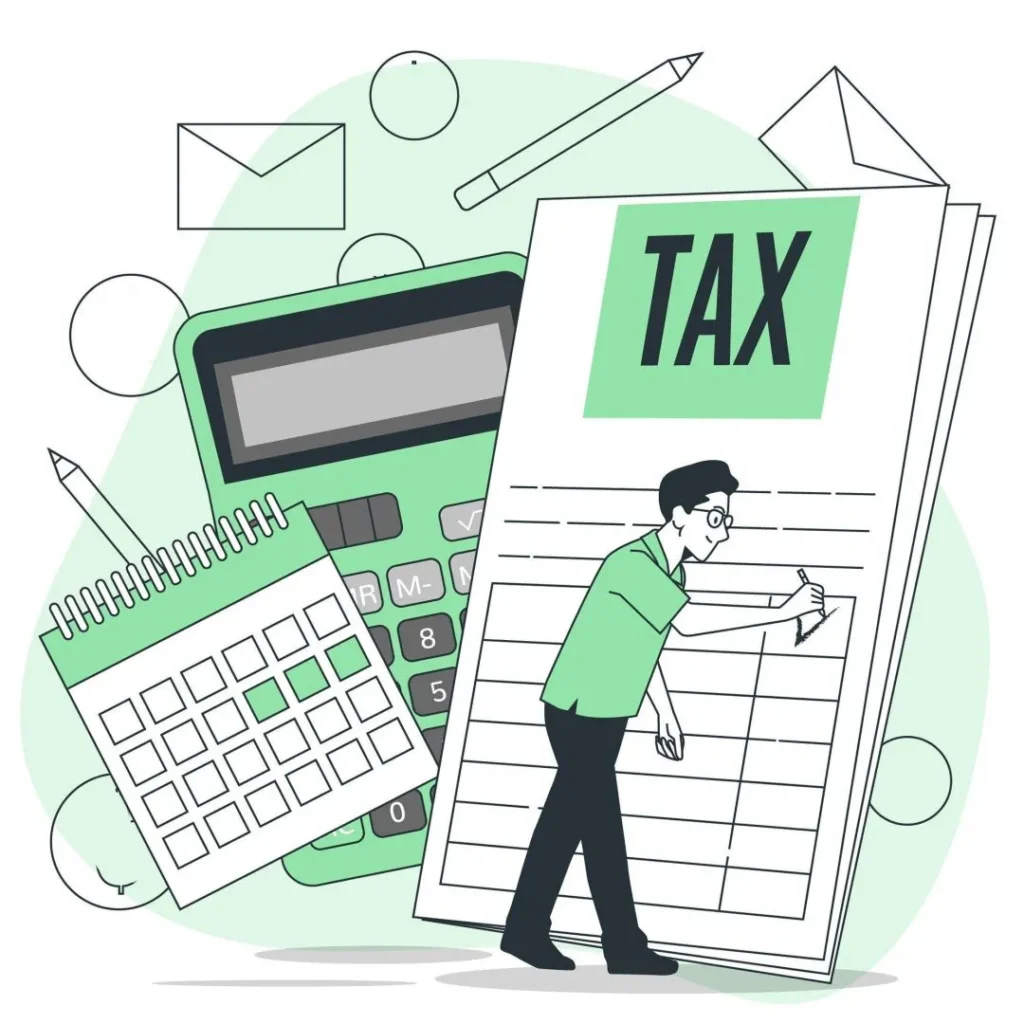Gain on disposal of a UK property is subject to capital gains tax (CGT). CGT on property disposals was applicable only to UK residents. So, the gain the non-residents made on the disposal of the UK property was free of tax.
However, a few years ago, the tax rules changed, and a tax called Non-Resident Capital Gains Tax (NRCGT) was introduced. This means that non-residents are now subject to CGT on the disposal of UK property.
Initially, from 6 April 2015, NRCGT regime covered only the disposal of residential properties. Later, from 6 April 2019, the regime covered non-residential properties as well.
Who falls under the scope of NRCGT?
All non-resident persons fall within the scope of NRCGT if they dispose of UK land and property. The following fall under the scope of NRCGT:
- Non-resident individuals, companies and partnerships
- Non-resident personal representatives and trustees
- Non-resident collective investment schemes
Non-resident CGT disposal include the disposal by company made on or after 6 April 2015 to 5 April 2019
Which properties do NRCGT cover?
NRCGT covers the following properties:
- Residential freehold properties and leasehold properties
- Commercial freehold properties and leasehold properties
- Any estate, interest, right or power over land and property in the UK
- Any buildings, structures, or land under the sea within the jurisdiction of the UK
What transactions fall under NRCGT?
Not only the sale but also granting of lease or even free transfer or gifting of the property attract Capital Gains Tax. Both direct and indirect disposal of any interest in UK land fall under the scope of NRCGT if the taxpayer is non-resident in the tax year of the disposal.
What does an indirect disposal mean?
The sale of the property itself is direct disposal whereas the sale of shares in a company that owns the property is indirect disposal.
Indirect disposals may be chargeable to NRCGT if two conditions are met:
1. 75% Value Test: The asset derives at least 75% of its value from UK land
Suppose, a non-resident company located in British Virgin Island (BVI) owns two assets worth £1 million in total (a UK land valuing £755,000 and overseas property in BVI valuing £245,000).
Here, UK land contributes to 75.5% of the total value of assets (£755,000 out of £1 million). So, 75% value is met.
2. 25 % Ownership Test: The seller has a ‘substantial indirect interest’ in the land
This applies when the person has at least 25% equity interest (during or within two years before disposal) in the company. Equity interest refers not only to ownership of shares but also to voting rights, the entitlement of the entity’s assets, entitlement to the distribution, etc.
An overseas company owning a real estate in the UK is liable to CGT on disposal of shares if both the above conditions are met.
How is the NRCGT Calculated?

Properties owned after 5 April 2019 (5 April 2015 if residential property) follow normal CGT calculation. If acquired before these dates, alternative calculations are allowed:
1. Calculation for Residential Properties owned before 5 April 2015
NRCGT on disposal of the residential property (which was acquired before April 2015 and remained as residential until 5 April 2019), can follow one of the three methods:
A. Default Rebasing Method
Under this default method, the non-resident taxpayer obtains a valuation of the residential property as on 5 April 2015. Only the difference between the proceeds of disposal and 5 April 2015 value is taxable.
For example,
A non-resident taxpayer bought a three-bedroom house in London in April 2001 at £350,000. The market value of the house on 5 April 2015 was £650,000. The house was sold in Apr-21 for £800,000.
The taxable gain for NRCGT will be £150,000 (i.e., £800,000 selling price less £650,000 Apr-15 market value) under the default method.
B. Time-Apportionment Method
The method allows time-apportionment of the gain.
For example,
In the above example, the total gain is £450,000 (The selling price of £800,000 less initial cost of £350,000), ignoring any other costs. The total period of ownership is 20 years, and only the six years since 5-Apr-15 is taxable.
So, the taxable gain will be £450,000 divided by 20 multiplied by 6, arriving at the taxable gain of £135,000. The good thing about this method is no need for valuation as on 5 April 2015.
C. Retrospective Computation Method
This method is quite simple and ignores any rebasing or time-apportionment for 5 April 2015. The entire gain is brought into the NRCGT.
For example,
In the example above, the taxable gain under this method will be £450,000. This method benefits when the disposal is loss-making.
2. Calculation for Non-Residential Properties owned before 6 April 2019
For CGT calculation on the disposal of non-residential properties (i.e., properties which were not under the scope of NRCGT before 6 April 2019), HMRC manual recommends one of the two methods:
A. Default Rebasing Method
Under this default method, the non-resident taxpayer obtains a valuation of the residential property as on 5 April 2019. Only the difference between the price of disposal and 5 April 2015 value is taxable under NRCGT.
B. Retrospective Computation Method
This method is quite simple and ignores any rebasing or time-apportionment for 5 April 2019. The entire gain is brought into the NRCGT. In the above example, the taxable gain under this method will be £450,000. This method is useful when the disposal is loss-making.
What is the Deadline for Reporting NRCGT?

Whether the disposal results into gain or loss, non-resident individuals within the scope of NRCGT MUST file return and pay CGT (if any) within 60 days of the completion of the transaction. (same as for residents as explained in CGT Return (60 days).
Non-resident companies can file NRCGT by 5 April of the year following the tax year i.e., disposals between 6 April 2023 to 5 April 2024 must be reported by 5 April 2025.
Is there any Relief Available on NRCGT?
Individuals who have lived for some time in the property before disposal can claim Private Residence Relief (PRR). PRR is very useful tool to avoid or reduce tax liability.
To claim PRR, the taxpayer should elect the house as main residence. The election applies retrospectively, and you can claim relief for the past years (whole relief if you have spent at least 90 days in a tax year, and proportionately if lesser than 90).
What is the Capital Gains Tax Allowance for 2023/24?
Gains up to £6,000 per year (for 2023/24) and £3,000 (onwards 2024/25) are exempt for residents as well as non-residents. Non-domicile UK residents choosing remittance basis are not entitled to annual exemption.
How much Tax is payable under NRCGT?

The rate of tax depends on different factors. Rates that apply for tax year 2023-24 is below (the rates and thresholds may change in future years):
|
Nature of property |
Rate of tax for tax year 2023-24 | |
|---|---|---|
|
For basic rate tax-payer (other taxable income below £50,270) |
For higher or additional rate taxpayer (other taxable income more than £50,270) | |
|
Residential properties (18% or 28%) |
18% on unused amount of your basic rate band 28% on the remaining amount |
28% on the whole gain |
|
Commercial properties (10% or 20%) |
10% on unused amount of your basic rate band |
20% on the whole gain |
What information do I need for the NRCGT return?
The following information is required before you complete the NRCGT return:
- property address and postcode
- the date you acquired the property
- the date you exchanged contracts when you were selling or disposing of the property
- the date you stopped being the property’s owner (completion date)
- the value of the property when you acquired it
- the value of the property when you sold or disposed it
- any improvements made to the property
- the details of any tax reliefs, allowances, or exemptions that you are entitled to claim
- property type, if you are a non-resident
- the estimated taxable income in the relevant tax year to determine the tax bracket
- the details of any other disposals already made in the tax year
- valuation as on 5 April 2015 or 5 April 2019 as relevant
- residency (tax years when you were UK resident and tax years when you were not UK resident)
Frequently Asked Questions
Do I Need To File NRCGT Returns If I’m A Non-UK Resident?
If you are a non-UK resident and have disposed of a UK property, you need to file NRCGT return. You might also need to file NRCGT returns if you have disposed of shares of a company that owns properties in the UK.
Can I File NRCGT Returns Online?
Yes, you can do it by receiving a property account number (PAN). You can request for PAN using your government gateway ID (you need to create it if you don’t already have it).
Do I Need To Provide Supporting Documentation With NRCGT Returns?
Yes, you need to attach the calculation of gains and tax.
Can I Offset Losses Against Capital Gains Under NRCGT?
Yes, you can usually offset capital losses against capital gains in the same year or against the future years.
How Can I Determine If I’m Liable For NRCGT?
Normally, you are liable for NRCGT if sales proceeds are more than the cost of purchase (or base value on 5 April 2015/2019). You can check how much owe through HMRC site.
Do I Need To Disclose Capital Gains In My Self-Assessment?
Yes, if you are required to do self-assessment, you must include the details of NRCGT.
Need more support?
Contact us at UK Property Accounts today! Our team of experts can assist you in accurately reporting your gains and reducing Non-Resident Capital Gains Tax (NRCGT) by claiming relevant reliefs.